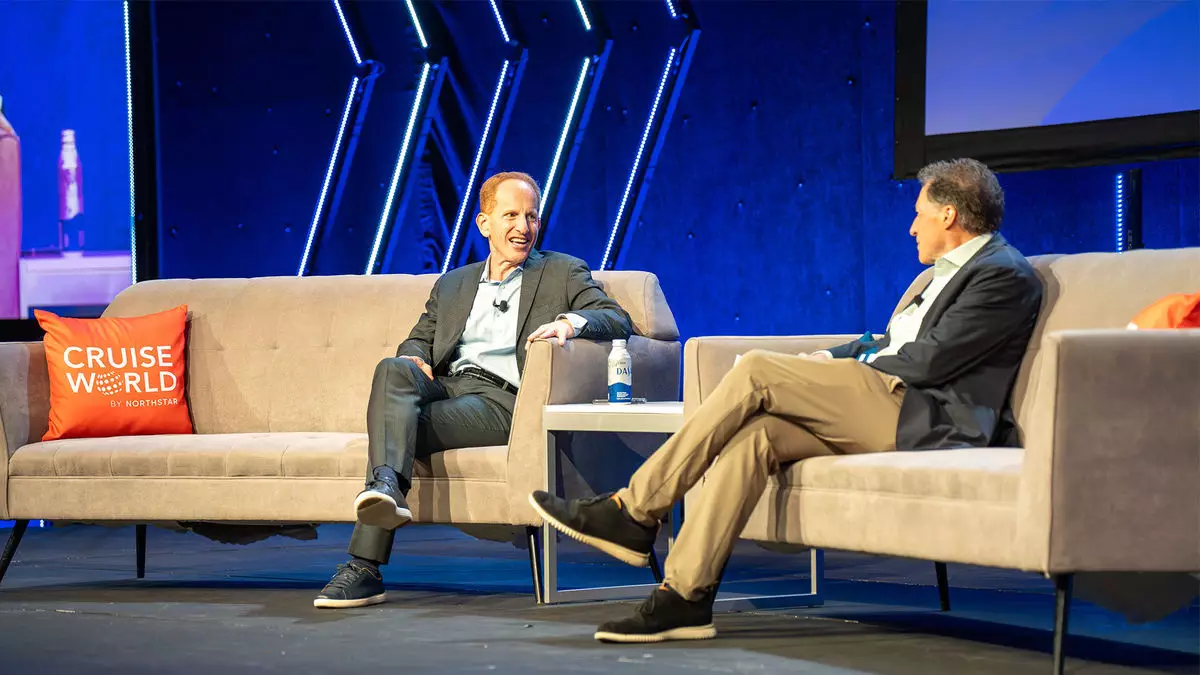The cruise industry is at a significant crossroads, facing increased scrutiny from environmental authorities, particularly in Europe. With a staggering 60 new vessels set to emerge within the next coming years, cruise lines are compelled to make meaningful strides towards more sustainable operations. Traditionally, many companies opted for liquefied natural gas (LNG) as a cleaner alternative to conventional marine fuels. However, this shift isn’t universal across the industry. Notably, Norwegian Cruise Line Holdings (NCLH) has chosen a different path, raising questions about the overall effectiveness of LNG in reducing emissions.
In a recent address at CruiseWorld, NCLH CEO Harry Sommer articulated the company’s rationale for steering clear of LNG. Contrary to common industry practices, Sommer asserted that LNG’s benefits are not as straightforward as they seem. While LNG does lower carbon emissions, it simultaneously produces elevated levels of methane, a potent greenhouse gas. This perspective challenges the widely accepted notion that LNG is the pinnacle of cleaner marine fuel: “We didn’t find that LNG actually reduces emissions,” Sommer explained. His stance prompts a broader discussion about the acceptable compromises in the quest for environmental sustainability, especially when weighed against emerging technologies.
Instead of LNG, NCLH is making groundbreaking advances by testing biofuels across 20% of its fleet. This approach reflects a mindset that embraces diverse solutions rather than relying solely on one type of fuel. Furthermore, the upcoming vessels in the Prima class will be designed to be “methanol-ready,” capable of operating on both diesel and green methanol—a promising fuel that has gained traction for its reduced emissions potential. This dual-fuel capability can be viewed as a pivotal step in transitioning to more sustainable operations.
The Cruise Lines International Association (CLIA) has been vocal about its ambition for the cruise industry to achieve net-zero carbon emissions by 2050. However, this vision hinges on securing an affordable and scalable clean fuel source—an area that continues to pose challenges. Royal Caribbean Group’s CEO, Jason Liberty, underscored the urgency of advancing fuel technology, stating, “We need the fuel sources to be available to us as soon as possible.” The industry is making considerable investments, yet the hurdles remain significant, evidenced by the slow rollout of viable clean fuel alternatives.
Transitioning Towards Sustainability
As the industry grapples with these complexities, the design of modern cruise ships is evolving to accommodate a multitude of fuel options. This flexibility is crucial in the temporary bridge necessary for a complete transition away from fossil fuels. The inherent challenges of developing and procuring cleaner energy sources cannot be understated, yet the industry’s ability to adapt and innovate may well define its future. By seeking out transitional fuels and continuing investments in sustainable technologies, cruise lines can pave the way for a more environmentally responsible nautical experience, moving toward a future that prioritizes not just profit, but also planetary health.


Leave a Reply